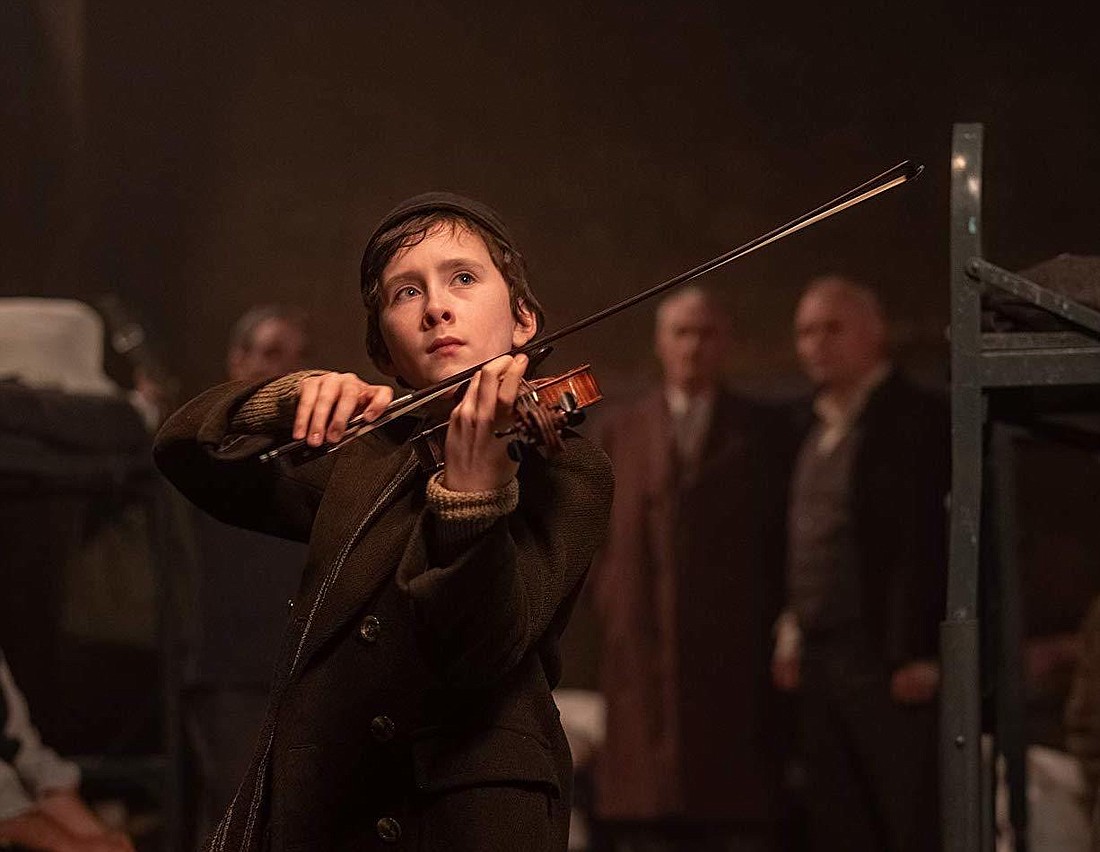- April 30, 2025
-
-
Loading

Loading

The opening scene in "The Song of Names " immediately draws us into the baffling mystery of a missing musician. The story spans a time period of over 50 years and keeps us guessing until the very end.
Just prior to the start of World War II, a Jewish father from Poland seeks asylum for his 9-year-old son, Dovidl (Luke Doyle), in London. Dovidl is a violin prodigy, and music publisher Gilbert Simmonds (Stanley Townsend) agrees to care for the boy while the father returns to Warsaw to protect the rest of his family.
Simmonds' son, Martin (Misha Hanley), is the same age as Dovidl, and at first their relationship is far from ideal. But in time their mutual love of music forges a bond between them that cannot be broken. In 1951, Dovidl is scheduled to give his first international performance for an elite London audience. Much to Martin's amazement, Dovidl disappears and the concert is cancelled. Thirty-five years later, Martin (now played by Tim Roth) receives a tip leading to the whereabouts of Dovidl (now Clive Owen) and the plot thickens.
Screenwriter Jeffrey Caine has woven a tale of intrigue based on the novel by Norman Lebrecht, and it's riveting. Director Francois Girard's ("the Red Violin") camera takes us on a journey that includes layovers in Hungary, England, Canada and — for the first time in a a feature film — Treblinka, Poland. "The Song of Names" is actually a commemorative recitation of those who perished at the infamous concentration camp there. It is brilliantly performed by a rabbi accompanied by a sorrowful violin. The scene is pivotal to the plot and utterly heartbreaking.
The casting is impressive and, for the most part unfamiliar, with the exception of Roth, Owen and Catherine McCormack, who plays Martin's wife. The young men who portray Martin (Gerran Howell) and Dovidl (Jonah Hauer-King) are gifted actors and their chemistry with each other is flawless. But it's Clive Owen who astounds us with his ability to fake(?) playing the violin.
"The Song of Names" is an emotionally charged piece of filmmaking that most likely will not receive the attention it deserves. It's message is one that has resonated ever since the Holocaust and needs to be forever etched in our minds. Never Again.